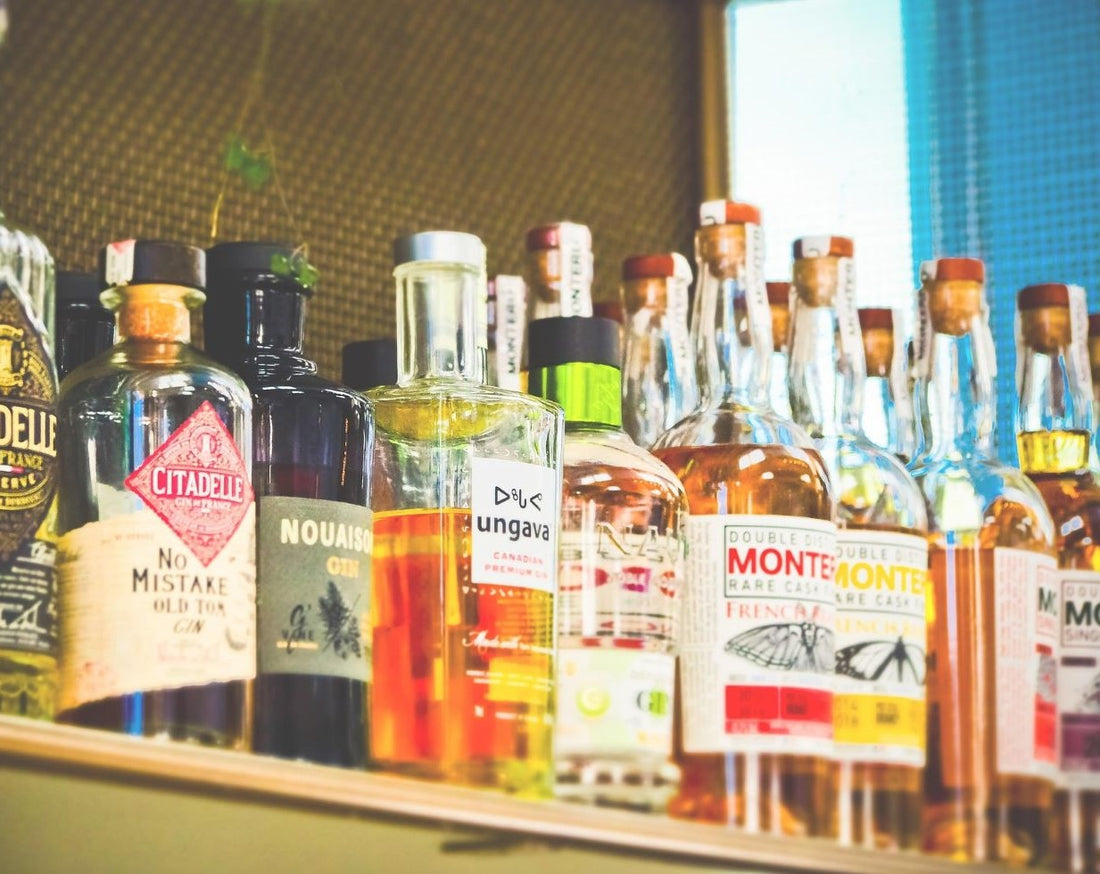Whisky and rum are two of the world’s most popular spirits, known for their complex flavours that develop over time. A common question among enthusiasts and collectors is whether these spirits continue to age once bottled. Unlike wine, which can mature and evolve in the bottle, whisky and rum behave differently due to their unique chemical composition. So, do whisky and rum age in the bottle? The short answer is NO—but the long answer involves factors like storage conditions, oxidation, and potential flavour changes.
In this article, we’ll explore why whisky and rum do not age in the bottle, how their flavours can still change over time, and how to properly store them to maintain quality.
1. What Does Aging Mean for Spirits?
Aging in the context of whisky and rum refers to the transformation that occurs when the spirit interacts with the wooden barrel it is stored in. This process is crucial for developing depth, character, and smoothness in the final product.
During barrel aging, the spirit undergoes several key changes:
- Extraction of Wood Compounds – The spirit absorbs tannins, lignins, and vanillin from the wood, contributing to flavours like caramel, vanilla, and spice.
- Oxidation & Evaporation – Oxygen slowly interacts with the liquid, mellowing harsh notes, while some alcohol and water evaporate (known as the "Angel’s Share").
- Chemical Reactions – Complex reactions between alcohols, acids, and esters create new aromatic compounds, refining the taste.
This aging only occurs while the spirit is in the cask—once bottled, this process stops entirely.
2. Why Whisky and Rum Do Not Age in the Bottle
Unlike wine, which continues to develop due to the presence of live yeast and organic compounds, whisky and rum are distilled spirits with high alcohol content (usually 40% ABV or more). This high alcohol level prevents the same type of chemical reactions that occur in wine.
Here’s why whisky and rum do not age in the bottle:
A. No Interaction with Wood
Aging relies on contact with oak barrels. Once whisky or rum is bottled, it is removed from the wood, so it no longer absorbs new flavours or undergoes further chemical development.
B. Minimal Oxygen Exchange
A properly sealed bottle of whisky or rum has very little oxygen inside, limiting oxidation. Over time, tiny amounts of oxygen may enter through the cork, but this effect is minor compared to what happens in a barrel.
C. High Alcohol Content Prevents Change
Unlike wine, which contains lower alcohol and more organic compounds that can evolve, whisky and rum’s high alcohol concentration makes them chemically stable. This means their flavour profile remains relatively unchanged as long as the bottle is sealed.
3. Do Whisky and Rum Change Over Time in the Bottle?
While whisky and rum do not technically "age" in the bottle, they can still change under certain conditions:
A. Storage Conditions Matter
If a bottle is exposed to heat, light, or air, its contents may deteriorate over time. UV light, for instance, can break down some flavour compounds, while excessive heat can cause expansion and leakage.
B. Oxidation After Opening
Once a bottle is opened, it is exposed to air, which gradually changes the flavour. Over months or years, oxidation can lead to:
- Loss of delicate aromas – Some volatile compounds may evaporate.
- Slight mellowing of harsh notes – Some oxidation can soften intense alcohol burn.
- Flattening of flavours – Prolonged exposure may reduce complexity.
C. The Role of Bottle Type and Seal
- Cork vs. Screw Cap – Corks allow very slow oxygen exchange, while screw caps create an airtight seal, preserving freshness longer.
- Bottle Size – A nearly empty bottle oxidizes faster because of the increased air-to-liquid ratio.
To slow oxidation, store opened bottles upright and tightly sealed.
4. How to Properly Store Whisky and Rum
To maintain the best quality, follow these storage tips:
A. Keep Bottles Upright
Unlike wine, whisky and rum should be stored upright to prevent prolonged cork contact, which could lead to cork degradation.
B. Store in a Cool, Dark Place
- Ideal Temperature: 15–20°C (59–68°F).
- Avoid Sunlight: UV rays can alter flavours and discolor the spirit.
C. Minimize Air Exposure in Opened Bottles
- If a bottle is less than half full, transfer it to a smaller bottle to reduce air contact.
- Use inert gas sprays (like argon) to create a protective layer.
5. Does Older Bottled Whisky or Rum Taste Different?
While an unopened bottle of whisky or rum remains chemically stable, older bottlings can sometimes taste different. This is usually due to production differences rather than bottle aging.
A. Changes in Distillation & Ingredients
- Older releases may have used different grain sources, fermentation methods, or cask treatments than modern versions.
- Changes in regulations, like new char levels in barrels or different proofing methods, can subtly impact flavour.
B. Bottle Condition & Storage
A well-preserved 30-year-old bottle of whisky or rum may still taste great, but a poorly stored one (exposed to heat or sunlight) may have degraded.
6. Myth vs. Reality: Common Misconceptions
Myth 1: A 12-Year-Old Whisky Becomes 20-Year-Old If Stored for 8 More Years
- Reality: The whisky remains 12 years old because aging only happens in barrels. Keeping it in a bottle for decades does not increase its maturity.
Myth 2: Older Bottles Are Always Better
- Reality: While rare old bottles can be valuable, some may lose vibrancy over time. A well-preserved bottle from 20 years ago may taste slightly different but not necessarily better.
Myth 3: Whisky & Rum Improve with Bottle Age
- Reality: Unlike wine, whisky and rum do not benefit from long-term bottle aging. A 50-year-old sealed bottle is still the same spirit as when it was first bottled.
7. Conclusion: Do Whisky and Rum Age in the Bottle?
No, whisky and rum do not continue to age in the bottle. Once bottled, the aging process stops, as there is no interaction with wood or significant oxygen exchange. However, factors like oxidation, storage conditions, and bottle design can cause subtle changes over time.
To maintain the best quality:
- Store bottles upright in a cool, dark place.
- Keep them tightly sealed after opening.
- Minimize air exposure in half-empty bottles.
While an old, sealed bottle of whisky or rum won’t age further, it can still be a treasure to open and enjoy—a true time capsule of its original craftsmanship.
So, if you have a prized bottle of whisky or rum, don’t wait too long to enjoy it—its best flavours are already locked inside, ready to be savored.
El Cartel Whisky Tasting Gift Box and Rum Tasting Gift Box will help you to find your favourite flavours and bottles by delivering the best and most carefully selected collections for tastings.

